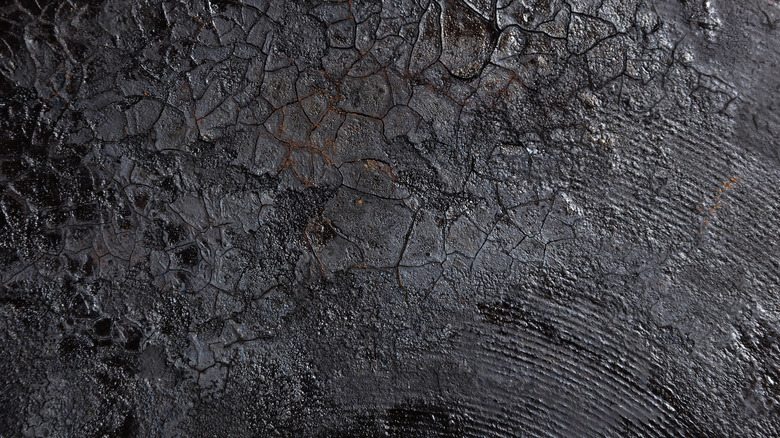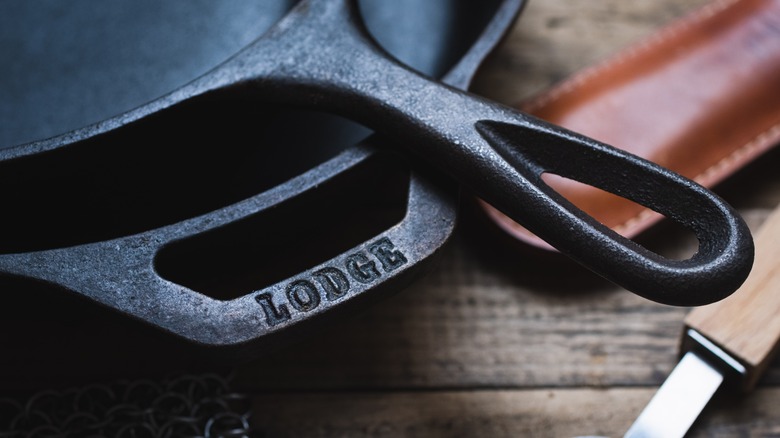Why Cast Iron Cracks (And How To Avoid It)
When well cared for, a good cast iron pan should last a lifetime — and beyond, becoming a bonafide heirloom that can be passed down from generation to generation. While durable, versatile, time honored, and healthy (no worrying about forever chemicals getting into your food, and even metal utensils are safe to use!) cast iron is not foolproof.
Rust, damaged seasoning, and cracks can occur with common missteps — so your best defense is mastering proper cast iron care from the get-go. While cast iron is largely salvageable even if it looks anything but — removing rust from your cast iron is easier than you'd think, for example — more intense damage like cracks require more intense TLC to rehab.
Cracks occur when cast iron is exposed to dramatic temperature changes too quickly — such as if you rush to run a scalding hot cast iron under a cool sink. Slow and steady wins the race with cast iron — which is to say, it's all about the gradual heating and cooling. Shocking the metal with too quick of a temperature change is when cracks in the metal occur, though they can handle a wide range of temps if allowed to slowly heat up or cool down. To avoid cracks, your best bet is to treat your cast iron with kid gloves — letting it cool off before you run it under cold water. Of course, you should also avoid dropping it, which can cause the metal to immediately crack and break.
Cracks aren't always fixable without a pro
Caring for a cast iron so it'll last for years isn't as daunting a task as the internet, or your grandma, may have made you believe. It's actually quite simple if you know the best and worst ways to clean your cast iron pan. Get into a routine of gently washing after use with water, thoroughly drying, and heating back up with a bit of oil rubbed all over the pan — either in a warm oven or on a burner — to heat, dry out, and re-season. In return, a well-loved pan will grant you a perfect, naturally non-stick cook surface. So, don't fall for the numerous myths about cast iron cookware — they're largely the most durable, easy to care for option out there.
Of course, things can quickly go wrong if your pan is subject to the thermal shock of sudden temperature swings, like setting a cold pan on a hot burner or running a scalding pan under ice cold water. Unfortunately, if cracks in the cookware itself have occurred, you're not looking at a simple DIY fix to repair it. Your best bet if you're determined to save it would be getting the pan repaired by a professional — welding is usually required to fix the damage. Unless you're willing to go to this length, you're probably better off replacing the pan with a new one, and avoiding this temperature misstep in the future.

